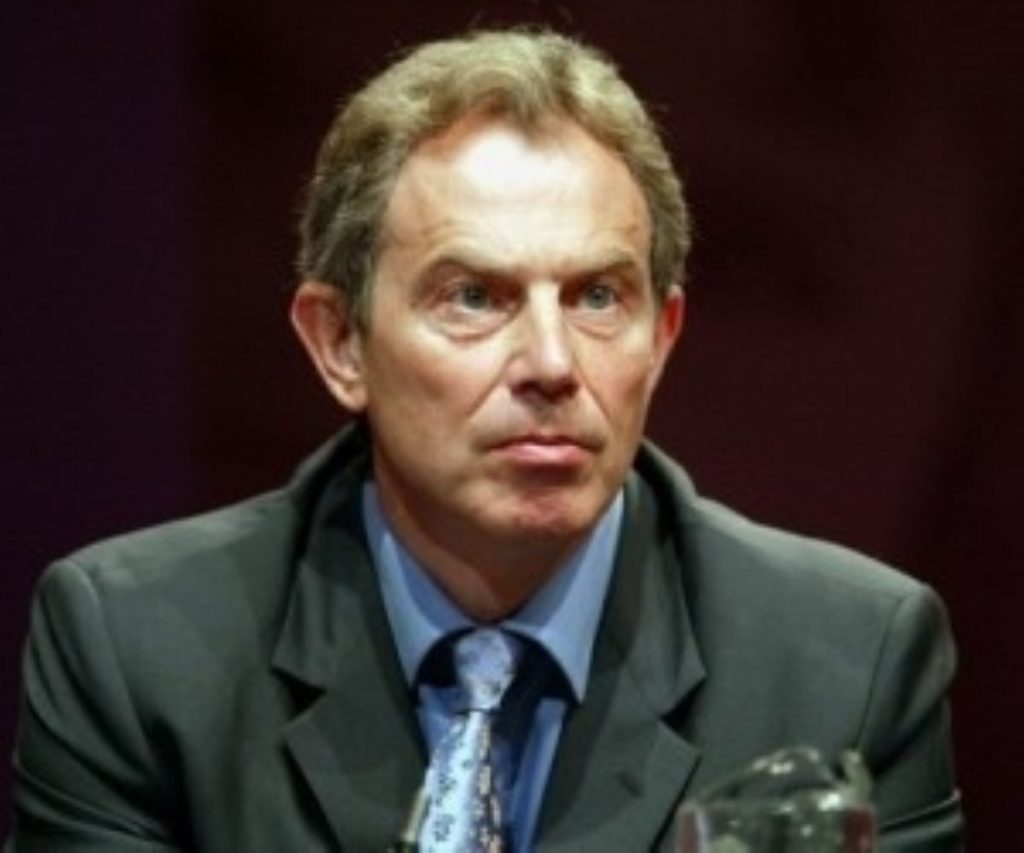Blair: Truth of dossier story would have merited my resignation
Prime Minister Tony Blair this morning told the Hutton Inquiry that he would have resigned had the claims made about the September 2002 dossier on Iraq’s weapons of mass destruction being “sexed up” been true.
Had it been the case that – as alleged by BBC defence correspondent Andrew Gilligan apparently on the basis of comments made by the late MoD weapons expert Dr David Kelly – that the Government knew the claim Iraq could deploy weapons of mass destruction in 45 minutes was wrong or questionable, Mr Blair acknowledged “it would have merited my resignation”.
The Prime Minister also revealed that at the height of the row between the Government and the BBC – precipitated by Alastair Campbell’s demands for an apology for the story from the Corporation – he had spoken to BBC chairman Gavyn Davies in private.
Mr Blair explained that he and Mr Davies – a former Labour donor – had attempted to find a way through the impasse, but Mr Davies refused to apologise, insisting that the source for the story had not been disproved.


Mr Davies is the next witness before the Inquiry.
In addition, Mr Blair insisted that he had not seen spokesman Tom Kelly’s email message, in which the row with the BBC was described as “a game of chicken” – and he insisted that he had not known what Mr Kelly, who caused controversy earlier in the course of the affair when he alleged that Dr Kelly was a “Walter Mitty character”, had meant.
In a 2 hour 20 minute session before Lord Hutton and James Dingemans QC, the Prime Minister answered questions first on the provenance of the September 2002 dossier, then on the row with the BBC that developed in the wake of Mr Gilligan’s story and finally on the emergence of Dr Kelly’s name as the source of the story.
On the former, Mr Blair insisted that the dossier had not been “sexed up” as alleged, but also that it was not intended to represent the whole of the case for war with Iraq. Nonetheless, he admitted that there was a new sense of urgency about dealing with rogue states in the wake of 9-11.
Whilst Mr Blair acknowledged that Alastair Campbell had been involved in the production of the dossier, he denied that his influence had been decisive and insisted that the dossier was “owned by the JIC”. He denied that he was aware of any disquiet among the security services about the dossier’s contents – as alleged by Mr Gilligan.
Questioned on the Gilligan story, Mr Blair declared that “it was an extraordinary allegation to make and an extremely serious one”.
He acknowledged that the entry of Mr Campbell into the fray escalated the dispute, and admitted that he was concerned about the Foreign Affairs Committee’s scrutiny of the decision to go to war. On the report that the Committee eventually produced, Mr Blair admitted “you would not have in any shape for form thought the next day: ‘well, that is the government in the clear'” after reading it.
On the disclosure of Dr Kelly’s identity, Mr Blair stood by the case made by Defence Secretary Geoff Hoon yesterday – agreeing that the MoD behaved entirely properly in its handling of the situation.
He insisted “we handled this by the book”, and noted that Dr Kelly was “told off” for leaking to Mr Gilligan, but not threatened with any more serious action.
As for the decision to go public and to require Dr Kelly to go before the Foreign Affairs Committee, Mr Blair stated “the very clear view of all of us.was that if it became clear that in all probability he was the source, the information could not remain undisclosed”.
He added “it would not have been for us to decide whether he was interviewed by the FAC or the ISC or not. That decision would be taken by them”.
Finally, Mr Blair insisted that no-one had any idea of the pressure that Dr Kelly was apparently under, which lead him to commit suicide.
He insisted, “there was nothing in the discussion that we [Mr Blair’s staff] had that would have alerted us to him being anything other than someone of a certain robustness who was used to dealing with the interchange between politics and the media”.












